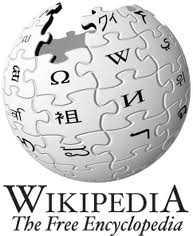There really does seem to be something about Canada + public health + social media. Constantly do I come across initiatives, programmes and conferences from Canadian universities that are exploring the use of social media in health research and communication.
 My latest discovery comes from the Faculty of Health Sciences at McMaster University in Ontario. This time it is Wikipedia that is at the focus of attention. A workshop for new Wikipedia writers took place on October 4th this year with the objective to encourage students, faculty researchers and staff to contribute to Wikipedia’s medical and health pages.
My latest discovery comes from the Faculty of Health Sciences at McMaster University in Ontario. This time it is Wikipedia that is at the focus of attention. A workshop for new Wikipedia writers took place on October 4th this year with the objective to encourage students, faculty researchers and staff to contribute to Wikipedia’s medical and health pages.
The rationale for the workshop was the following:
“Ensuring that high-quality health information is available to help people make informed decisions related to their health can be an important strategy to achieve the social objective of a healthy community. Wikipedia is a major source of health information for the general public and also for professionals in the health field.”
And it continues:
“Knowledge translation is a mandate shared by many organizations and granting bodies. Wikipedia can be part of a knowledge translation strategy. The volume of student work on health and related subjects each term is enormous. In many cases, rather than being publicly available and widely disseminated, high quality work sits on professors shelves or worse. Providing students with the tools to contribute to Wikipedia may make assignments more meaningful.”
The initiative came from the president of Wikimedia Canada, James Heilman, who has also been a contributor to the Wiki Project Medicine.
According to James Heilman, Wikipedia is one of the major sources for health and medical information worldwide. Its medical articles get between 150-200 million page views a month (in English alone) with up to 70 per cent of physicians using it in their clinical practice. The reason for reaching out to universities is according to James Heilman:
“Right now, Wikipedia is a good source of information but it could be better. To improve Wikipedia we need the input of the academic community.”
The workshop was offered free of charge to the participants but was partly sponsored by the university itself through its Department of Clinical Epidemiology and Biostatistics.
The workshop naturally has a wiki-entry where the objective and programme details are available.
I have not yet been able to find information on how the workshop went or how many participated, but as an initiative in itself I find it very interesting. Having the last couple of days interviewed researchers at the Institute of Public Health at University of Copenhagen, I must say that I find it extremely relevant also in a Danish context. Many people I have talked to do use Wikipedia, but have never reflected on the fact that they themselves can contribute to Wiki-pages. Or know how to do it. Offering the course to students also makes complete sense as using social media technologies, such a Wikipedia, is very much a question of creating a culture around it and train students and researchers to view it as an additional communication channel for research findings.
Wikipedia trainings at a faculty of health sciences
There really does seem to be something about Canada + public health + social media. Constantly do I come across initiatives, programmes and conferences from Canadian universities that are exploring the use of social media in health research and communication. My latest discovery comes from the Faculty of Health Sciences at McMaster University in Ontario. […]


